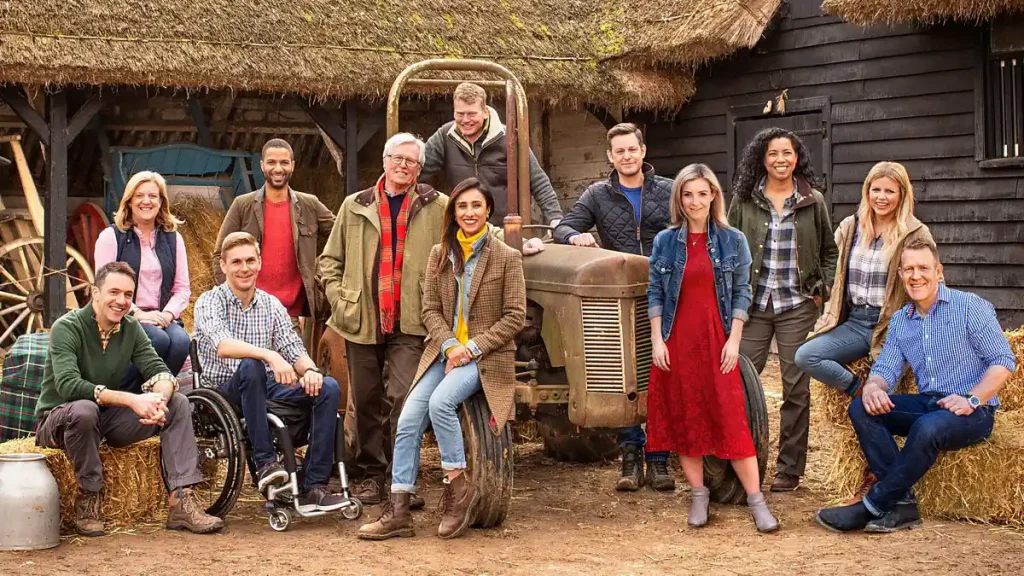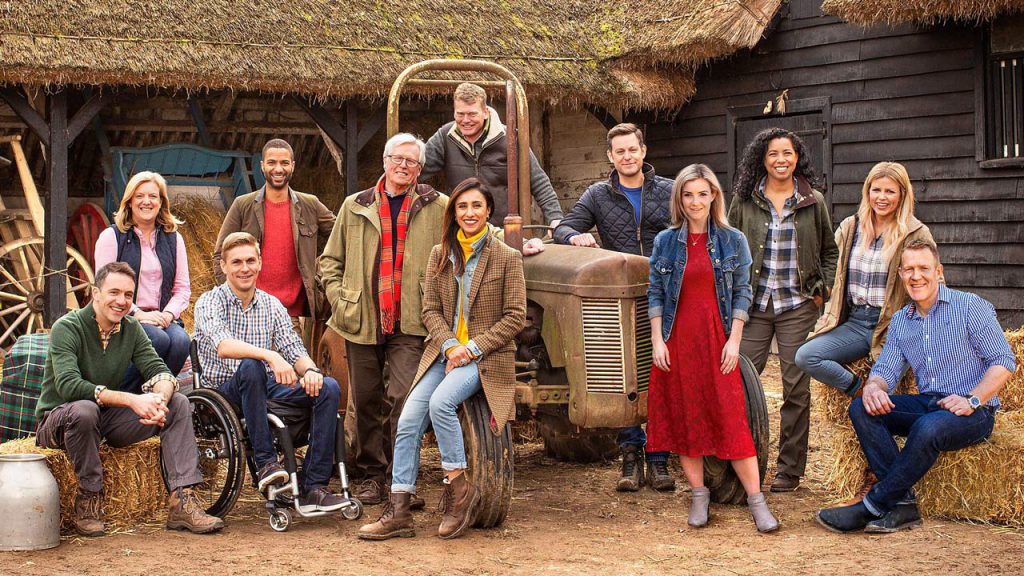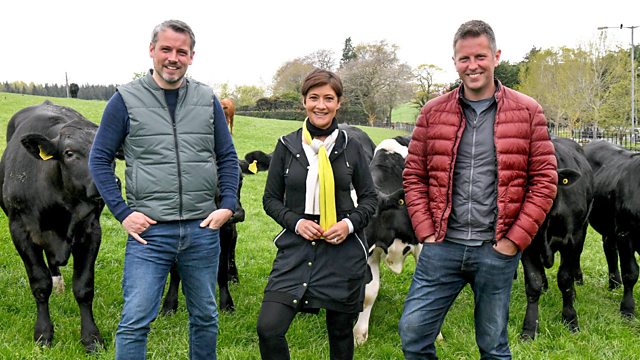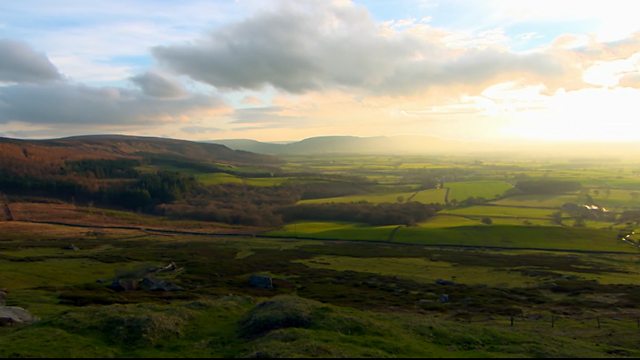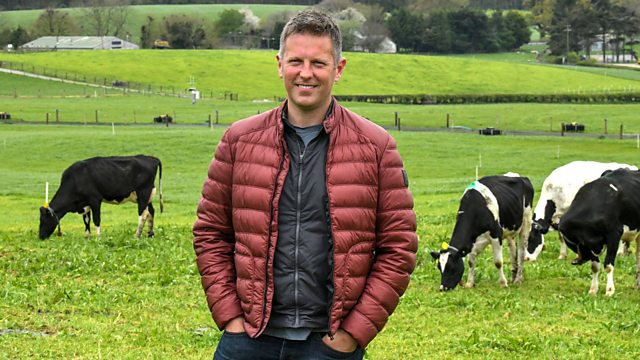Countryfile – Rare Breeds 50th Anniversary Compilation – This year marks a truly momentous occasion as we celebrate the 50th anniversary of the Rare Breed Survival Trust, a remarkable charitable organization established by the visionary Joe Henson, father of the renowned Adam Henson. The trust’s unwavering mission has been to combat the alarming decline of rare breed populations across the United Kingdom. To commemorate this significant milestone, we embark on an extraordinary journey to Adam’s idyllic farm, where we witness firsthand how he has fearlessly embraced the responsibility entrusted to him.
As the summer sun graces the land with its warm caress, Adam eagerly welcomes a skilled shearing gang to his sprawling farm. With precision and care, they delicately remove the luscious coats from his magnificent commercial sheep, unveiling the beauty and grace that lies beneath. But our adventure doesn’t end there; we delve deeper into the rich tapestry of history and heritage by acquainting ourselves with their ancient cousins. We catch a captivating glimpse into the world of Willow Warbler, a majestic Exmoor pony stallion. With bated breath, we discover if his presence has been met with open hearts by the graceful mares of the farm and whether he has bestowed upon them the precious gift of new life, in the form of delightful foals.
Intrigue leads us to the enchanting Lexi, a splendid Suffolk punch horse, who gracefully strides forward to undergo a momentous event—her pregnancy scan. The anticipation lingers in the air as we eagerly await the revelation of new beginnings, another chapter in the ever-unfolding story of life on the farm. Meanwhile, a magnificent Gloucester bull, preened to perfection from head to tail, prepares for a grand day at a prestigious country show. With meticulous attention to detail, Adam ensures that his prized bull stands as a true testament to the excellence and splendor of his beloved rare breeds.
Amidst the hustle and bustle of farm life, a special guest graces the farm with their presence. The esteemed chief executive of the revered British Pig Association steps onto the fertile grounds, creating an aura of anticipation. It is a truly extraordinary moment, as Adam and the chief executive unite in a profound meeting of minds, sharing their passion for preserving and promoting the remarkable heritage of British pigs.
In this remarkable journey, we bear witness to Adam Henson’s unwavering dedication and the indomitable spirit of the Rare Breed Survival Trust. Together, they inspire us all to cherish and protect the unique wonders of our nation’s rare breeds, ensuring their legacy continues to thrive for generations to come.
Countryfile – Rare Breeds 50th Anniversary Compilation
Creating a Sustainable Future through Conservation
With the escalating environmental challenges, organizations like the Rare Breeds Survival Trust (RBST) are stepping up efforts to safeguard the planet’s biodiversity, particularly focusing on livestock. Established in 1973 by Joe Henson, RBST is a conservation charity that works tirelessly to ensure the continued existence and viability of the United Kingdom’s native farm animal genetic resources (FAnGR)1.
A key part of the Trust’s work involves maintaining a watchlist of rare native breeds of cattle, sheep, pigs, horses, goats, and poultry. This proactive approach allows the Trust to monitor population trends and prioritize breeds that need immediate attention. Additionally, RBST has successfully created a farm animal “gene bank”, a repository of genetic material from various rare breeds. This initiative has gained significant attention, particularly during the UK’s foot-and-mouth disease crisis, where it was instrumental in preserving breed diversity.
Ensuring the Survival of Rare Breeds
The Trust’s achievements in conservation are numerous and commendable. Notably, since its inception, no UK-native breed has gone extinct. This fact stands as a testament to the RBST’s dedication and the effectiveness of their conservation strategies. They’ve implemented various projects, including the Manx Ark Project, which provides sanctuary for rare breeds at several sites in the Isle of Man.
However, the work of conservation is a constant journey. The Trust continues to work tirelessly, adopting innovative strategies and collaborating with farmers, breeders, and other stakeholders to ensure the survival of the UK’s native livestock breeds. Their efforts are a beacon of hope, demonstrating that with the right measures, we can protect and preserve our planet’s rich biodiversity.
Building Awareness and Advocacy
For conservation efforts to be successful, awareness and advocacy play a crucial role. RBST understands this and actively promotes education about the importance of native livestock breeds and the threats they face. They provide resources and information, enabling the public to understand the significance of these breeds, their role in the ecosystem, and their contributions to our heritage and culture.
Moreover, the Trust advocates for policies that favor the conservation of native livestock breeds, urging government bodies and institutions to recognize the importance of maintaining genetic diversity. Their advocacy work includes lobbying for financial support and favorable legislation for farmers who keep these breeds, thereby incentivizing conservation.
Embracing the Benefits of Rare Breeds
Rare breeds offer more than just genetic diversity; they are often well-adapted to local conditions and possess traits that are beneficial in specific environments or agricultural systems. For instance, some rare breeds are more disease-resistant, more adaptable to harsh environmental conditions, or have unique dietary habits that can help manage land in sustainable ways.
Embracing the benefits of rare breeds is not just about conservation; it’s also about recognizing the potential these breeds offer in terms of sustainable farming practices. By promoting rare breeds, the Trust is not only conserving biodiversity but also advocating for a more sustainable and resilient agriculture sector.
Looking Ahead: The Future of Rare Breeds
The future of rare breeds depends on the collective efforts of organizations like RBST, governments, farmers, and the public. As we move forward, we must continue to support initiatives aimed at conserving these breeds. Supporting RBST, whether through donations, participating in their programs, or advocating for their cause, is a step towards ensuring a future where the UK’s native livestock breeds continue to thrive.
The Rare Breeds Survival Trust’s work represents a beacon of hope in the conservation world. Their tireless efforts to safeguard rare breeds serve as a testament to what we can achieve when we commit ourselves to the preservation of our planet’s biodiversity.
The Role of Multi-Criteria Decision Analysis in Conservation
In the quest to conserve Farm Animal Genetic Resources (FAnGR), unique approaches are being developed to enhance the cost-effectiveness of investments in genetic diversity. A notable example is the use of multi-criteria decision analysis (MCDA), which aids in rationalizing rare breed incentive schemes1.
MCDA combines technical information and stakeholder preferences to score alternative options, in this instance, breeds. It aids in constructing a performance matrix detailing rare breed attributes that are weighted to derive preference scores concerning multiple endangerment and benefit criteria. These scores are then used to allocate a hypothetical breed improvement fund (BIF) across breed societies1.
The application of MCDA has been instrumental in making more targeted investments in diversity, considering multiple factors driving extinction risk alongside cultural and diversity attributes that complement conservation. This method allows for a more systematic approach to conservation, focusing on the development of indicators to better monitor breed attributes and formulate more systematic conservation responses1.
Future Policy Options for Breed Conservation in the UK
The current state of UK FAnGR is concerning, with 80% of native breeds now classified as at risk. The UK government is exploring a range of policy options for future agricultural and environmental support, especially following its withdrawal from the EU. These policies aim to provide “public funds for public goods” from agriculture, aligning with the strategy of cost-effective breed conservation1.
As the world continues to grapple with the threats of climate change and emerging disease risks, the conservation of rare breeds becomes even more critical. These breeds may carry important genes that allow breeders to respond to global production challenges. Therefore, it is vital to continually explore innovative and cost-effective approaches to rare breed conservation, ensuring the survival and preservation of these valuable genetic resources
